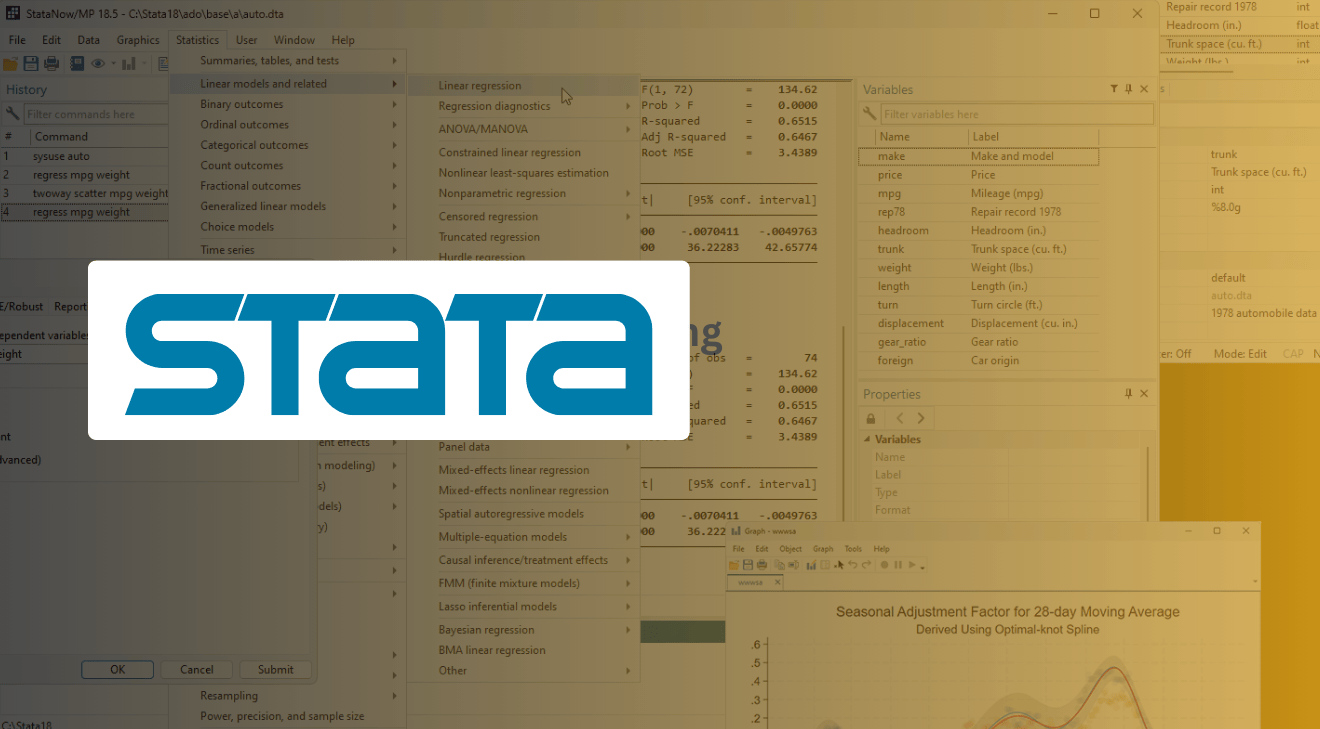
Training on Research Design, Data Management and Statistical Analysis using Stata
In the socio-economic and business context, conducting research, data management and data analysis are imperative for informed decision making. The availability of several datasets and research techniques open the gateway of conducting systematic research which will be helpful for consumers, businesses and organizations. A sound knowledge about the methodology of conducting research and use of Stata as a research, data management and analysis tool is very beneficial for the researchers. Upon completion, the participants will develop competence in quantitative techniques through hands-on practices in study design, data collection, and management, as well as the analysis and interpretation of data.
Target Participants
The training is designed for participants who intend to learn how to plan, implement effective research studies including data management and analysis. This course will benefit the people working in the private sector, government institutions, research institutions and NGOs.
What you will learn:
By the end of this training the participants will learn to:
- Understand and appropriately use statistical terms and concepts
- Design and Implement universally acceptable research
- Develop of functional research protocol
- Design both quantitative and qualitative data collection tools
- Perform data analysis tasks with Stata
- Perform simple to complex data management tasks using software
- Statistical tests using Stata software
- Writing reports from survey data
Course Duration
Online 14 Days
Classroom-based 10 Days
Introduction to research
- Introduction to research
- Different types of research
- Formulation of research problem statement
- Formulation of research hypothesis
Overview of Evaluation
- Evaluation Objectives
- Evaluation Criteria
- Evaluation Questions
Research Design
- Quantitative Research Approaches
- Qualitative Research Approaches
Sampling
- Sampling Techniques
- Sample size determination
Data Collection Methods in Research
- Quantitative data collection methods
- Qualitative data collection
- Creating an evaluation framework
Data Collection tools in Research
- Survey Questionnaire design
- FGD guide design
- KII guide design
Developing Research Protocol
- What is a research protocol?
- Basic concepts of a research protocol
- Structure of a research protocol
Mobile Data Collection and Processing (ODK)
- Introduction to mobile data gathering
- Design of survey forms using ODK build and XLSForm
- Use ODK collect to gather data
- Use ODK aggregate to upload data to the server
- Work with spatial data (GPS coordinates)
Data Processing
- Data coding
- Data capture
- Data editing
- Data imputation
- Treatment of outliers
Introduction to Stata statistical software
- Stata interface and features
- Key terminologies used in Stata
- Views: Variable, Data views, Syntax editor
- Data file preparation
- Data entry into Stata
- Data manipulation: merge files, spit files, sorting files, missing values
Basic Statistics using Stata
- Descriptive statistics for numeric variables
- Frequency tables
- Distribution and relationship of variables
- Cross tabulations of categorical variables
- Stub and Banner Tables
Graphics using Stata
- Introduction to graphs in Stata
- Graph commands in Stata
- Different types of Graphs in Stata
Statistical Tests using Stata
- One Sample T Test
- Independent Samples T Test
- Paired Samples T Test
- One-Way ANOVA
Statistical Associations in Stata
- Chi-Square test
- Pearson's Correlation
- Spearman's Rank-Order Correlation
Predictive Models using Stata
- Linear Regression
- Multiple Regression
- Logistic Regression
- Ordinal Regression
Longitudinal Analysis using Stata
- Features of Longitudinal Data
- Exploring Longitudinal data
- Longitudinal analysis for continuous outcomes
Qualitative Data Analysis using NVivo
- Introduction to NVivo
- NVivo workspace
- Uploading qualitative data into NVivo
- Coding and making nodes
- Use of queries
- Project visualization
Survey Report writing and Dissemination
- Survey report format
- Survey report content
- Survey findings dissemination
- Use of survey findings for decision making

